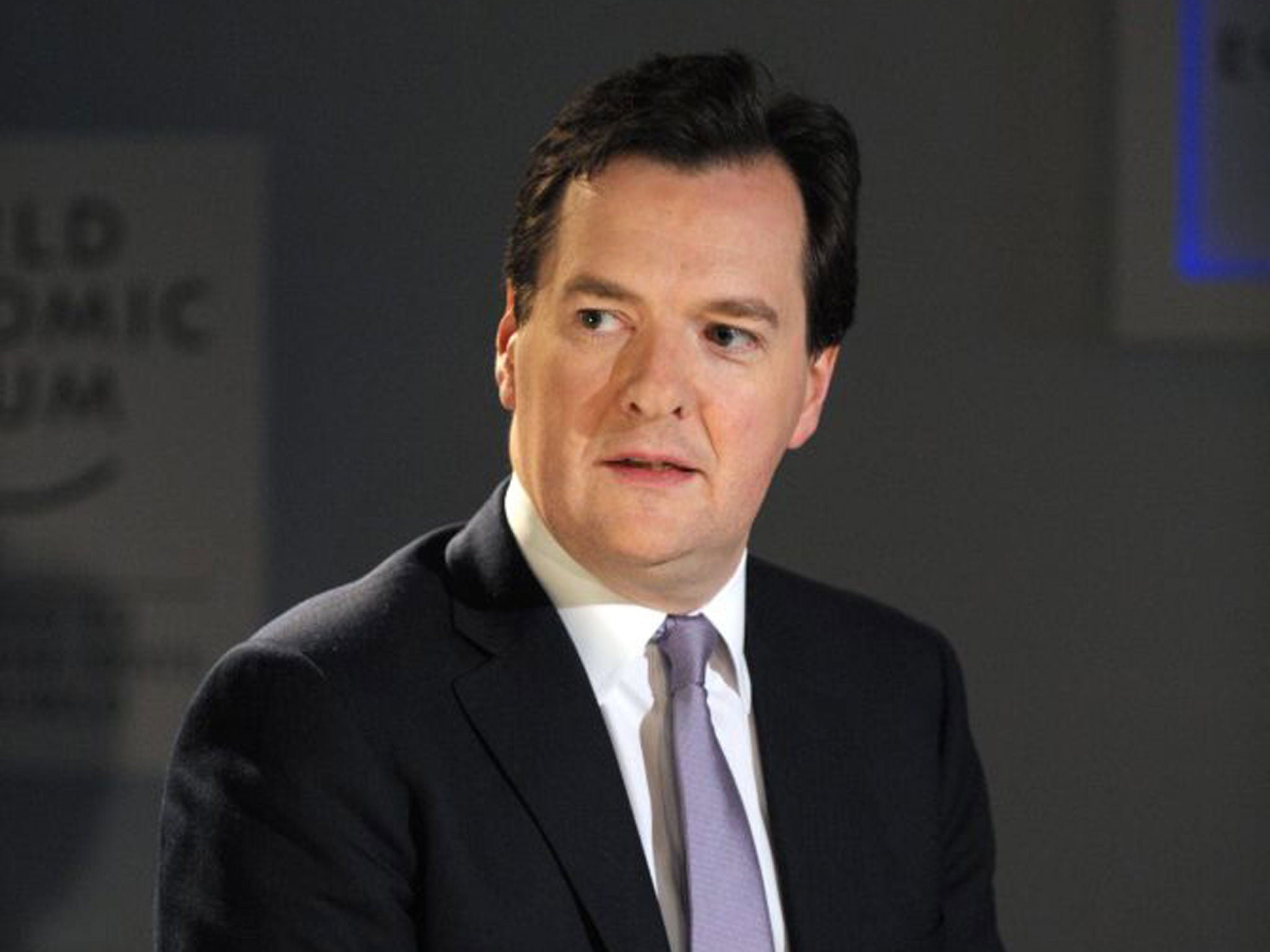Now even Goldman Sachs tells Osborne to find a Plan B
Austerity under attack from across political spectrum after disastrous growth figures

George Osborne was urged last night to rethink his deficit-reduction programme by a chorus of economic experts from across the political spectrum as the UK teetered on the verge of a triple-dip recession.
Britain moved a step closer to losing its AAA credit rating with new figures revealing the economy did not grow at all over 2012 – prompting experts who had previously backed the Chancellor's austerity measures to urge a change of course. Yesterday's worse-than-expected GDP figures showed the British economy actually contracted by 0.3 per cent in the final quarter of last year.
Jim O'Neill, chairman of Goldman Sachs Asset Management, said the contraction showed that "policy has been on the wrong path" and that fiscal policy had been "tightened too much" by the Chancellor.
The Mayor of London, Boris Johnson, warned: "The hair shirt stuff, the Stafford Cripps agenda – that is not the way to get Britain motoring again."
Others from the world of finance echoed that view. "The more time that passes, the clearer it is that America's gradual and delayed approach to fiscal tightening is the right one," said Trevor Greetham of the investment group Fidelity. The chief economist of the accountancy firm KPMG, Andrew Smith, advised "there is little reason to think 2013 will turn out any better than 2012".
The Royal Bank of Scotland said the last four years had produced the worst economic performance since the 1830s, excluding post-war periods. "It's worse than the 1920s; it's worse than the Great Depression," said Stephen Boyle, head of group economics at the bank.
Mark Littlewood, of the Institute of Economic Affairs think-tank, generally sympathetic to the Chancellor, said: "These figures are clearly very disappointing. If the Government does indeed have a strategy for growth, it plainly isn't working."
Boris Johnson's newly appointed economic adviser, Dr Gerard Lyons, said that the "poor" figures showed the need for the Government to take remedial action "to boost demand".
There were signs of a growing debate inside the Coalition, too, about whether a change of course on the economy is needed. The Liberal Democrats will not call openly for a Plan B, but are increasingly worried about the prospect of a triple-dip. Cabinet ministers including Vince Cable, the Business Secretary, are pressing privately for a further boost to major building projects and for such pro-growth measures to be exempt from cuts during a new round of £10bn savings now being sought by Mr Osborne for 2015-16.
Lord Oakeshott, the Liberal Democrats' former Treasury spokesman, said: "The economy is as flat as a pancake. No growth means no progress in the Coalition's central purpose of reducing the deficit. We Liberal Democrats did not sign up to stagflation and a vicious circle of self-defeating cuts. It is time to challenge the Treasury orthodoxy that has learnt nothing since the 1930s."
Labour seized on Nick Clegg's admission yesterday that the Coalition had been wrong to cut the capital spending plans it inherited from Labour in 2010. Ed Balls, the shadow Chancellor, said: "These deeply disappointing figures expose just how dangerously complacent the Prime Minister was when he said last autumn that the 'good news will keep coming'."
Earlier this week the chief economist of the International Monetary Fund, Olivier Blanchard, said that the Government should slow the pace of its planned spending cuts in its March Budget, adopting the economic Plan B Mr Osborne has always resisted.
The GDP figures sent sterling to its lowest level against the euro for more than a year. The currency's woes were compounded by signs of recovery from the eurozone's banks, which are preparing to pay back a large chunk of the €1 trillion lifeline extended by the European Central Bank last year.
City of London analysts warned yesterday that the return of the UK to contraction meant Britain was more likely to be downgraded by the credit-rating agencies. "[These] numbers have greatly increased the risk of a new recession and a downgrading of the UK's AAA credit rating" said Chris Williamson, an economist at Markit.
All three of the main credit-rating agencies – Standard & Poor's, Moody's and Fitch – have put Britain on "negative outlook". The disruption to economic activity this month by heavy snowfall has prompted fears that the first quarter of 2013 could also show a contraction. This would meet the technical definition of a recession, and represent the UK's third in five years.
However, the Chancellor, speaking from Davos, again refused to slow the pace of public spending cuts yesterday. Mr Osborne said: "We can either run away from those problems or we can confront them and I am determined to confront them."
Join our commenting forum
Join thought-provoking conversations, follow other Independent readers and see their replies
Comments
Bookmark popover
Removed from bookmarks